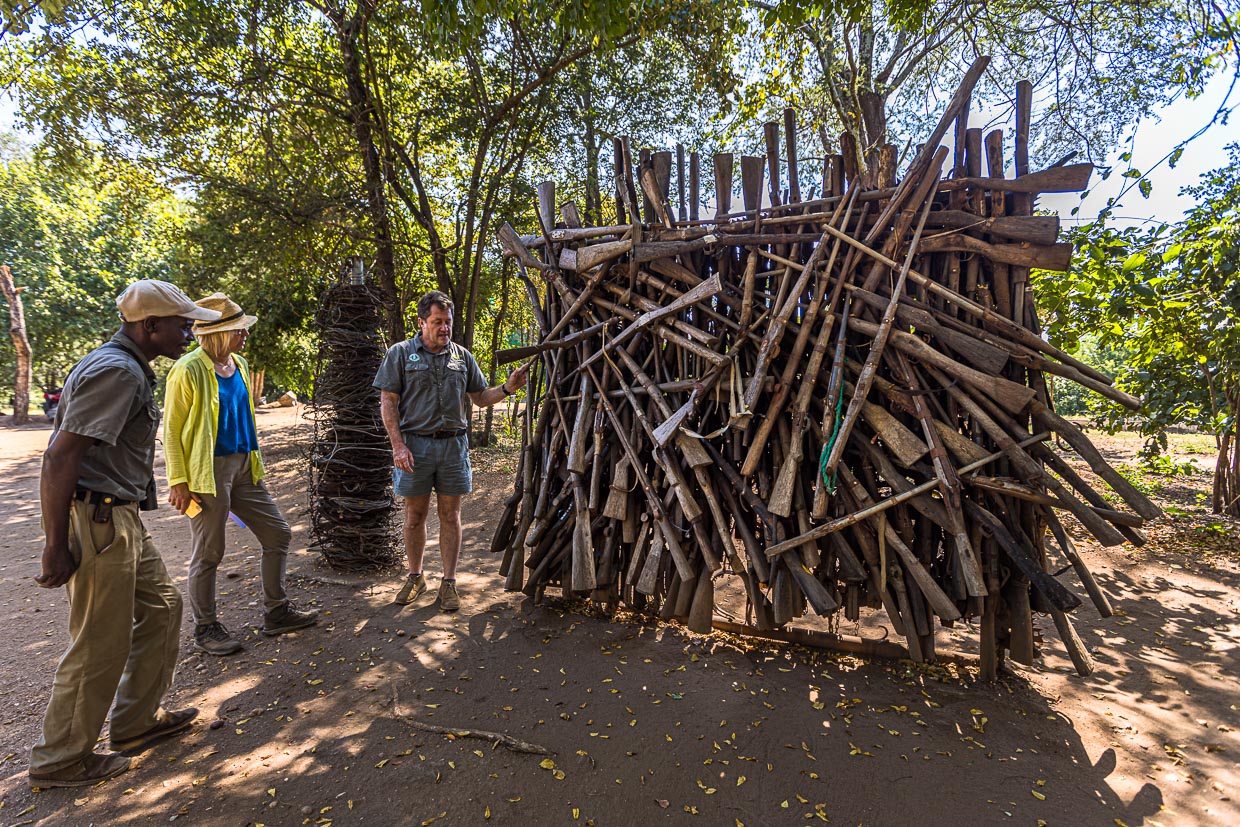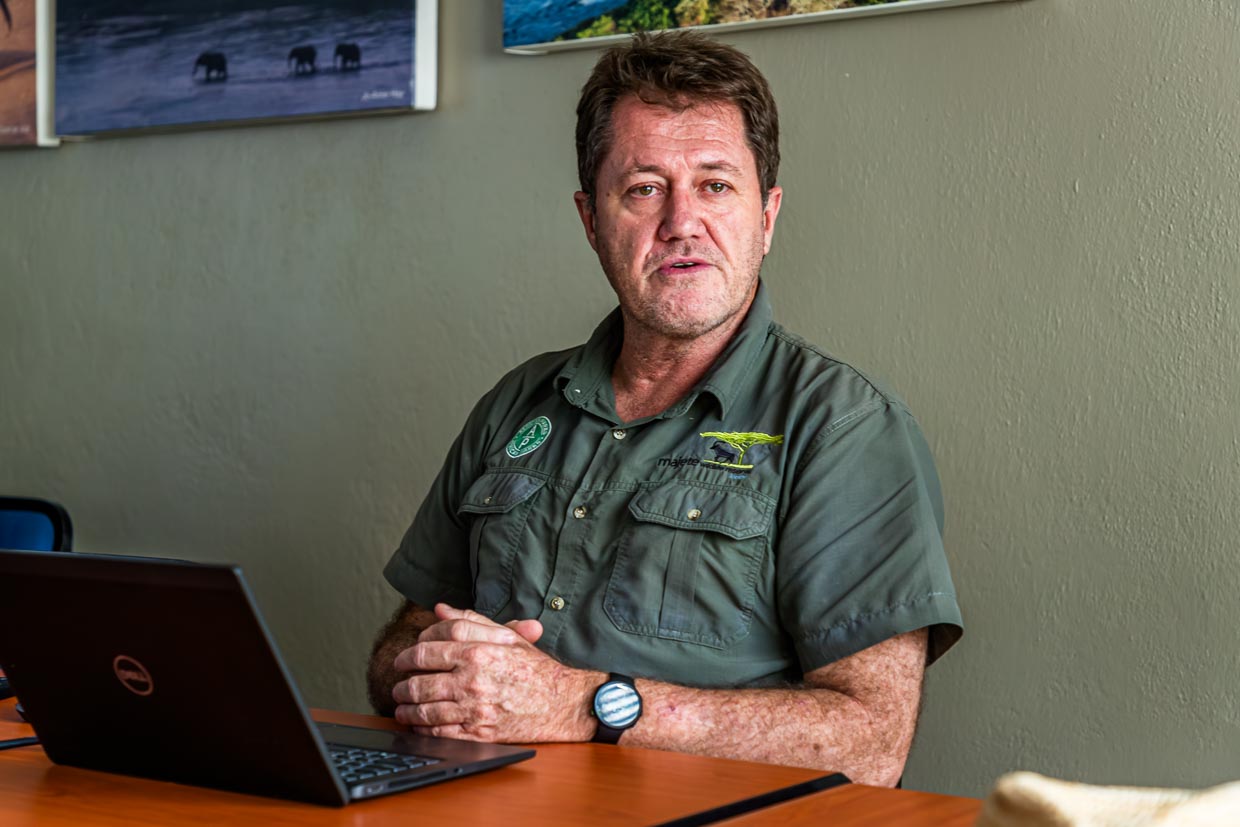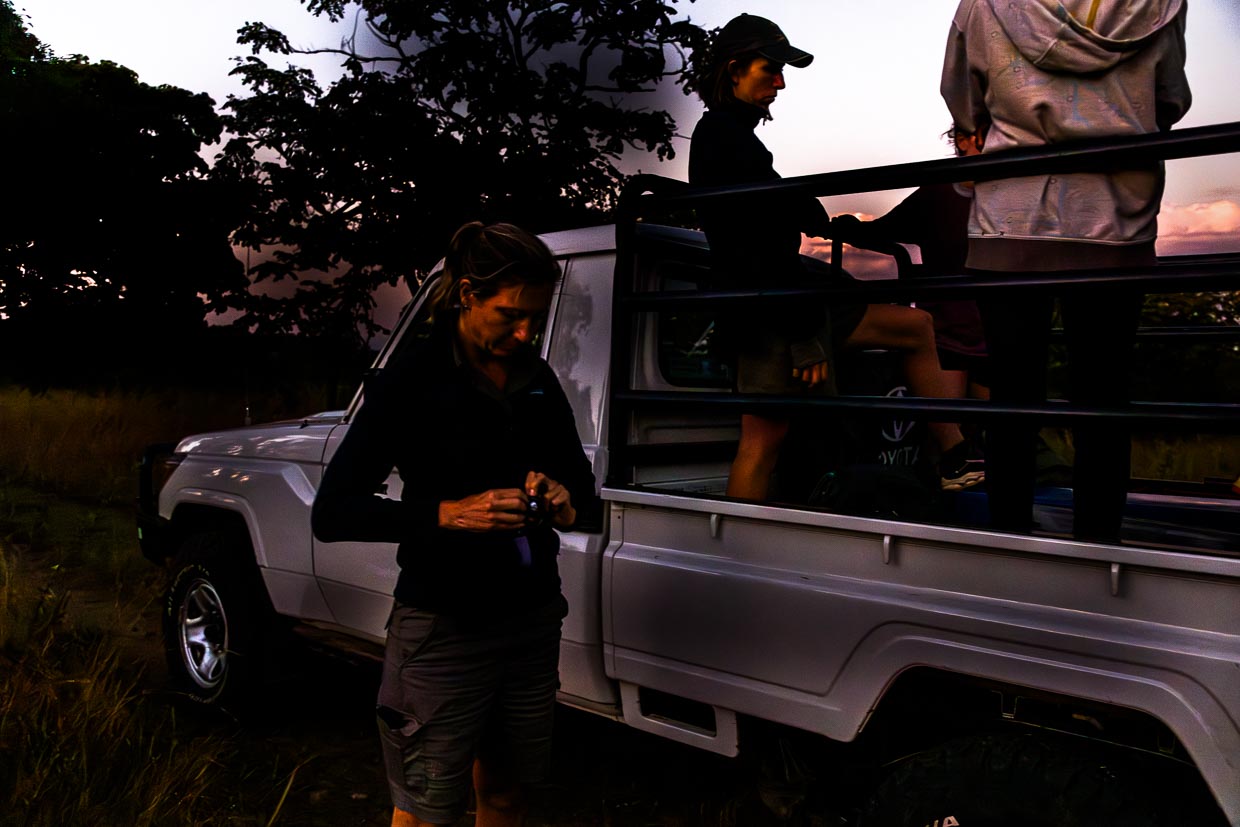It stands like a memorial in the Majete Wildlife Reserve, the collage of countless guns and rifles that rangers have confiscated from poachers over the years. On August 29, 2023, the NGO African Parks will celebrate the 20th anniversary of its commitment to conservation and biodiversity in Malawi. The often homemade firearms are a danger to many endangered species, but often enough poachers also injure or kill themselves. Poaching is a complicated vicious cycle. Breaking it takes more than patrolling rangers.

When African Parks took over Majete Wildlife Reserve in 2003 in a public-private partnership with the Malawi Government Department of National Parks and Wildlife (DNPW), the poachers had hunted the park empty. Except for a few antelopes, there was no wildlife left and accordingly tourism was down. Bad times for species conservation and for the people in the villages around Majete. 2023 Majete Wildlife Reserve is a showcase project in Malawi.
On August 29, 2023, Majete Wildlife Reserve will celebrate its anniversary with Malawi government officials and representatives from African Parks. Park staff, supporters and residents of surrounding village communities are also invited. There are many successes to celebrate on this day. But there will also be a remembrance of a young ranger who died in the line of duty. A memorial stone will be erected for him on the grounds.

The most dangerous species
After the successful reintroduction of wildlife, Majete was for a long time the only place in Malawi where the Big Five could be observed. Today, 12,000 big game animals live in the park, including rhinos, elephants, leopards, cheetahs, lions, buffalo and giraffes. In 2021, a major milestone will be reached with the reintroduction of the wild dog, the last predator to be eradicated in the region. One of the greatest successes of the more than 40 rangers in the park, however, is that poaching of rhinos, elephants and other endangered species has been consistently halted since 2003. Nevertheless, the work of the game rangers remains dangerous. At the entrance to Majete Wildlife Reserve, there is an information center that provides information about the park’s population and biodiversity. There is also a wooden box hanging on the wall with a request to open the flap to see the most dangerous of all species. If you open the flap, you look into your own reflection. As recently as October 2022, a ranger was brutally killed by poachers in the park.
Strengthening communities
Successful park management is very complicated. It’s also about containing diseases like malaria, building schools, investing in children’s education, providing scholarships, and securing livelihoods for locals. In Majete and other national parks in Malawi, this has also been achieved by pushing back poachers and making the parks safer. With increasing biodiversity and improved security, tourism has also returned. Above all, employment opportunities have multiplied as a result. Particularly encouraging in the development of tourism, is also a significant increase in visitors from Malawi who want to see for themselves the return and successful reproduction of wildlife in their country.

On the road in Majete Wildlife Reserve
Park manager John Adendorff talks about the various strategies against poaching, the work of the rangers and monitoring teams as well as a mission with veterinarian Dagmar Mayer to put a lioness under anesthesia. To the reportage about nature conservation as a successful model in the Majete Wildlife Reserve.
An overview of all the stories about Malawi can be found on the country page Malawi. The landlocked country in Southeast Africa, which is also called the Warm Heart of Africa, is still considered an insider tip for Africa travelers. In regional comparison Malawi is a safe and peaceful country. The country’s landscape is dominated by Lake Malawi, the tenth largest lake in the world. In the total of five national parks, successful wildlife management has been practiced for several years and the biodiversity has increased enormously. Liwonde National Park and Majete Wildlife Reserve have been under the management of African Parks for 20 years. Thawale Lodge offers accommodation in the middle of the park. Nevertheless, the population of Malawi suffers from poverty. A controlled growth of tourism creates income opportunities in rural areas and improves the livelihood of families. The sustainable cultivation of tea and coffee, as on Satemwa Estate, or the reconstruction of banana farming in the country, also create important jobs. More information about tourism in Malawi.
The research trip was supported by the Ministry of Tourism in Malawi.

